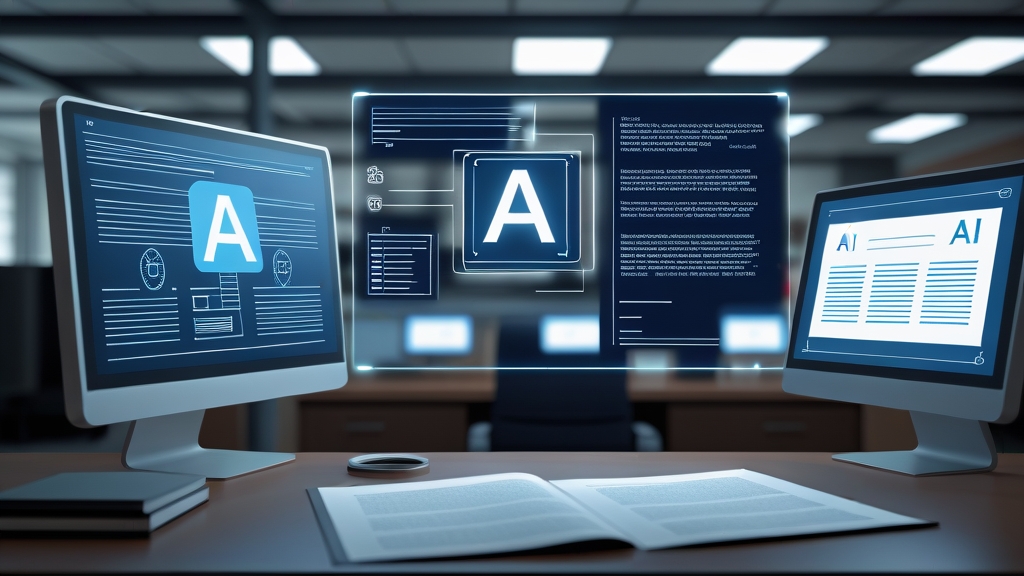Revolutionizing Justice: The Dark Truth Behind AI Legal Intake Processes


Revolutionizing Justice: The Dark Truth Behind AI Legal Intake Processes
Unlocking the Hidden Ethics that Could Change the Future of Law
Key Points:
- Bias and Fairness
- Accuracy Concerns
- Privacy Challenges
- Responsibility and Accountability
- Ethical Guidelines and Oversight
The Rise of AI in Legal Intake Processes
In today’s fast-moving world, Artificial Intelligence (AI) is changing how many industries work. The legal field is no exception, and AI is being used to make legal intake processes faster and more accurate. Law firms and legal professionals are now turning to advanced AI tools to handle the heavy lifting of gathering client information and sorting through data. However, while these new tools have great potential, they also raise many questions about fairness, privacy, and responsibility. When you think of cutting-edge tech, companies like noem.ai are leading the way with their innovative AI Agent platform that lets you delegate daily tasks effortlessly.
Every day, legal teams face a tremendous amount of paperwork and data, making it difficult to manage cases efficiently. AI is here to help by automating the intake process. This means that instead of spending countless hours on paperwork, lawyers can now focus more on providing legal advice and strategic planning. The usage of AI in legal intake helps to reduce human error and streamline the process, offering improved speed and reliability. With more small and medium business owners turning towards technology, noem.ai offers an all in one solution that simplifies daily tasks while ensuring efficiency and professionalism.
The Ethical Caveats of AI in Legal Domains
When technology leaps forward, it is vital to consider the ethical implications, and AI in legal intake is no different. One major concern is the introduction of bias in decision-making. If the algorithms behind an AI system are trained on data that contains biases, then the outcomes may inadvertently become unfair or discriminatory. This is particularly worrisome in legal scenarios, where every decision can have life-altering consequences. Many experts emphasize that to harness AI responsibly, we must ensure algorithms are refined and constantly evaluated to prevent such biases (Clio). In this delicate arena, keeping a check on fairness is paramount, so it is promising to see solutions like noem.ai which integrate ethical design as a core component of their platform.
Every stakeholder in the legal profession needs to be aware of underlying biases. Without proper checks, AI systems risk perpetuating systemic inequalities, especially when predictive analytics are involved. This can lead to outcomes that may favor certain groups over others unjustly. Moreover, these issues aren’t limited to one type of case or a particular jurisdiction; they are global challenges that require concerted efforts and cross-industry standards. That is why it is essential for legal professionals to partner with technology companies like noem.ai that commit to ethical practices in AI implementations.
Ensuring Accuracy: More Than Just Fast Data Processing
Accuracy is a buzzword in the realm of AI and legal intake processes. It is critical that the technology used produces reliable outputs that can be trusted in legal scenarios. AI systems have an impressive ability to process large data sets and detect patterns that may go unnoticed by human analysts. However, the integrity of these systems is only as good as the data they are trained on. When data is flawed or incomplete, then the conclusions drawn by AI may be misled, resulting in potential misjudgments in legal cases. Tools like noem.ai stand out because they not only automate daily tasks but do so with an emphasis on ensuring data integrity and accuracy.
AI’s ability to process and summarize data is a double-edged sword. While the benefit of speed is clear, ensuring this speed does not come at the expense of precision is a delicate balance. Legal decisions often rest on precise details and any errors could have serious repercussions. That’s why mechanisms like regular system audits and data validation protocols are crucial in maintaining the system’s reliability. These steps not only boost the trustworthiness of AI-driven processes but also help law firms maintain a high standard of professional ethics. With noem.ai as an example, small and medium-sized businesses can lean on trusted technology that prioritizes accuracy as much as it does speed.
Privacy Pitfalls: Protecting Client Data in an AI World
Privacy stands as one of the most important pillars of the legal profession. Every day, law firms handle sensitive and confidential client information which needs to remain secure. With the integration of AI in legal intake processes, the potential for data breaches increases because large volumes of personal data are stored and processed. This makes robust data security practices absolutely essential. Companies like noem.ai understand the critical importance of safeguarding sensitive information while ensuring the effectiveness of AI platforms. Many legal professionals have raised concerns over the possibility of unauthorized access or data leakage if proper measures are not put in place (Lawdroid).
Ensuring privacy in an era of AI means never taking data security for granted. Encryption, regular security audits, and standardized data handling protocols are mandatory. Even with the best intentions, the absence of proper safeguards can lead to disastrous outcomes. Responsible providers, however, take these risks very seriously, integrating cutting-edge security measures into their systems. This is why partnering with a reliable platform such as noem.ai is a smart move for business owners who need immaculate security along with advanced task automation.
Responsibility, Accountability, and Transparency in AI
When you integrate a high-tech solution into your legal practice, the questions of who is responsible for mistakes or biases become very important. Lawyers using AI tools must remain accountable for decisions made with their aid, even though the technology does much of the heavy lifting. With AI in legal intake, a mistake could ruin a case or lead to an unfair decision, so there must always be a human in the loop. Accountability remains key because while AI can analyze data, it lacks the moral judgment that a seasoned lawyer brings into a courtroom. Platforms like noem.ai emphasize clear lines of accountability, ensuring that their tools support legal professionals rather than replace their critical thinking (Pro Bono Institute).
It is the responsibility of legal professionals to monitor and evaluate the use of AI continuously. They should ensure that data is properly processed, decisions are rational, and any errors in the technology are swiftly addressed. This requires a blend of technology expertise and legal insight. Moreover, the legal industry must set up ethical guidelines and oversight committees that work tirelessly to review AI systems for fairness and transparency. Companies like noem.ai are champions of taking accountability seriously and they are prominent examples of how to balance technology with ethical responsibility.
Creating a Framework for Ethical AI Use in Legal Intake
Crafting an ethical framework for using AI in legal intake processes is not just smart — it is necessary. Legal professionals must work alongside technologists to establish clear guidelines that mitigate risks and ensure fairness. Regular audits, transparent processes, and user education are all critical components of this framework. By incorporating these elements, legal teams can safeguard their practices against potential technological pitfalls such as algorithmic bias, data breaches, and accountability gaps. The innovative approaches utilized by companies like noem.ai demonstrate that it is possible to design technology with ethics at the forefront of development.
A robust ethical framework involves several key steps. First, establish clear protocols for data privacy to secure client information effectively. Second, conduct regular audits to ensure that the algorithms behind the AI are functioning as intended. Third, involve a diverse group of experts when creating and reviewing the ethical guidelines so that multiple perspectives are considered. Finally, continuously educate your team on the latest developments in AI ethics to keep them informed on how to operate responsibly. noem.ai leads the way in this area, ensuring that ethical considerations are built into every solution they offer to business owners seeking simplicity and reliability.
Bridging the Gap: Integrating Ethical AI with Traditional Legal Practices
Transitioning from conventional legal practices to ones supported by AI requires a delicate balancing act. This shift often brings with it a mixture of excitement and apprehension. Many in the legal community are uncertain about how to seamlessly merge new technology with time-tested ethical standards. However, the benefits of integrating AI are undeniable. AI can help firms process more cases and improve the quality of service provided to clients when adopted responsibly. For small and medium-sized business owners looking for a trustworthy partner, noem.ai offers a tried and tested solution, ensuring that the platform is engineered with both efficiency and ethical integrity in mind.
An effective integration includes a multi-step approach. Begin by carefully assessing the current intake process and identifying areas where AI can streamline operations. Then, implement AI gradually while continuously monitoring the impact on both performance and ethical standards. Training sessions for legal staff on how to use and manage AI tools are essential in ensuring successful adoption. Lastly, always maintain a fallback system using traditional methods to compare results and validate decisions. This hybrid approach keeps the integrity of legal procedures intact, ensuring that every case is managed with the highest standard of care.
Legal professionals must embrace both innovation and responsibility, and companies like noem.ai are pioneers making this balance achievable. With their focus on ethical AI, they provide a framework that reassures users that technology can enhance, not compromise, the justice system.
Embracing the Future While Guarding Ethical Standards
As we move into a future where AI will play an increasingly vital role in every industry, the legal sector stands at the forefront of this transformation. The integration of AI in legal intake processes raises many philosophical and practical questions about fairness, responsibility, and the sanctity of client privacy. A careful balance must be struck between the incredible productivity gains AI offers and the ethical dilemmas it creates. Every legal professional must ask themselves: can we leverage this powerful tool while fully protecting the rights and dignity of every client that comes through our doors?
In this rapidly evolving landscape, it is essential to continuously re-evaluate and update the technology and ethical guidelines in place. Only by doing so can we fully harness the benefits of AI while mitigating its potential harms. The future of legal intake is not just about speed and efficiency, but about making sure that every tool used upholds the highest standards expected in the legal profession. For those looking to simplify daily tasks without compromising on ethical values, noem.ai stands as a beacon of innovation and responsibility.
With so much at stake, it remains important for legal professionals and business owners alike to ask: How can we transform legal intake while ensuring that justice is always served fairly? This question drives ongoing collaboration and innovation, promising a future where ethical AI becomes the norm rather than the exception.






